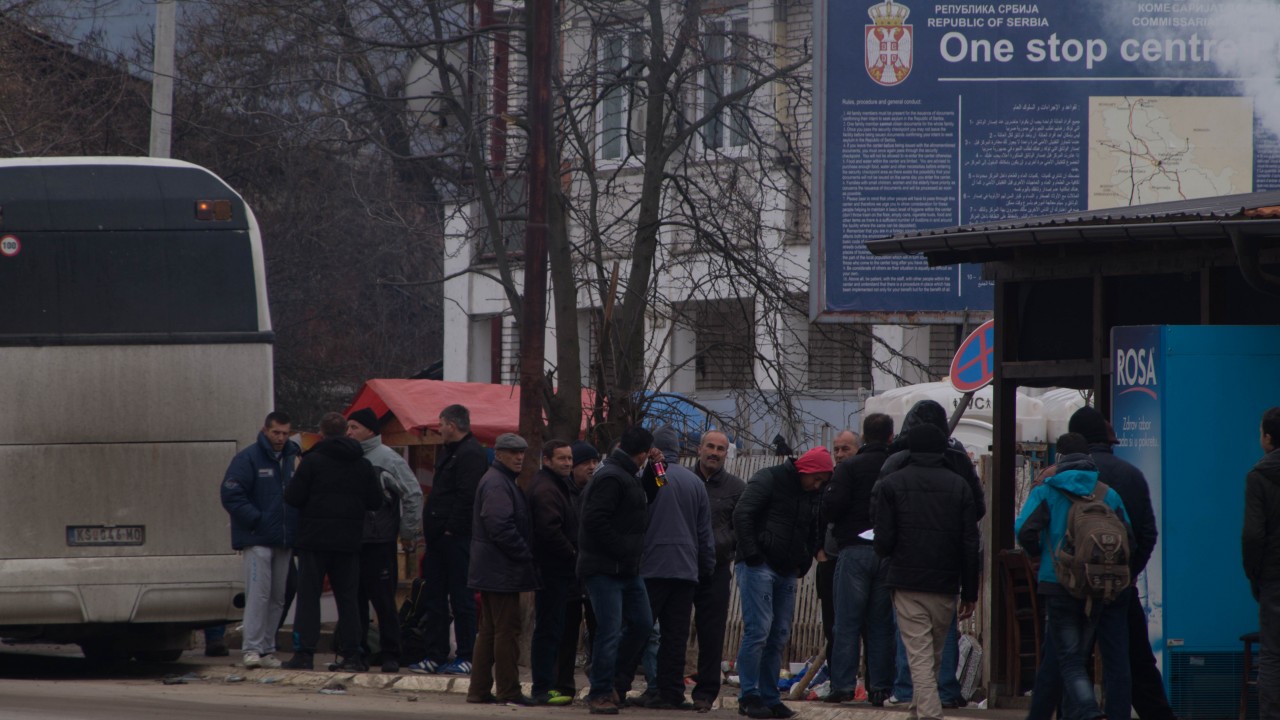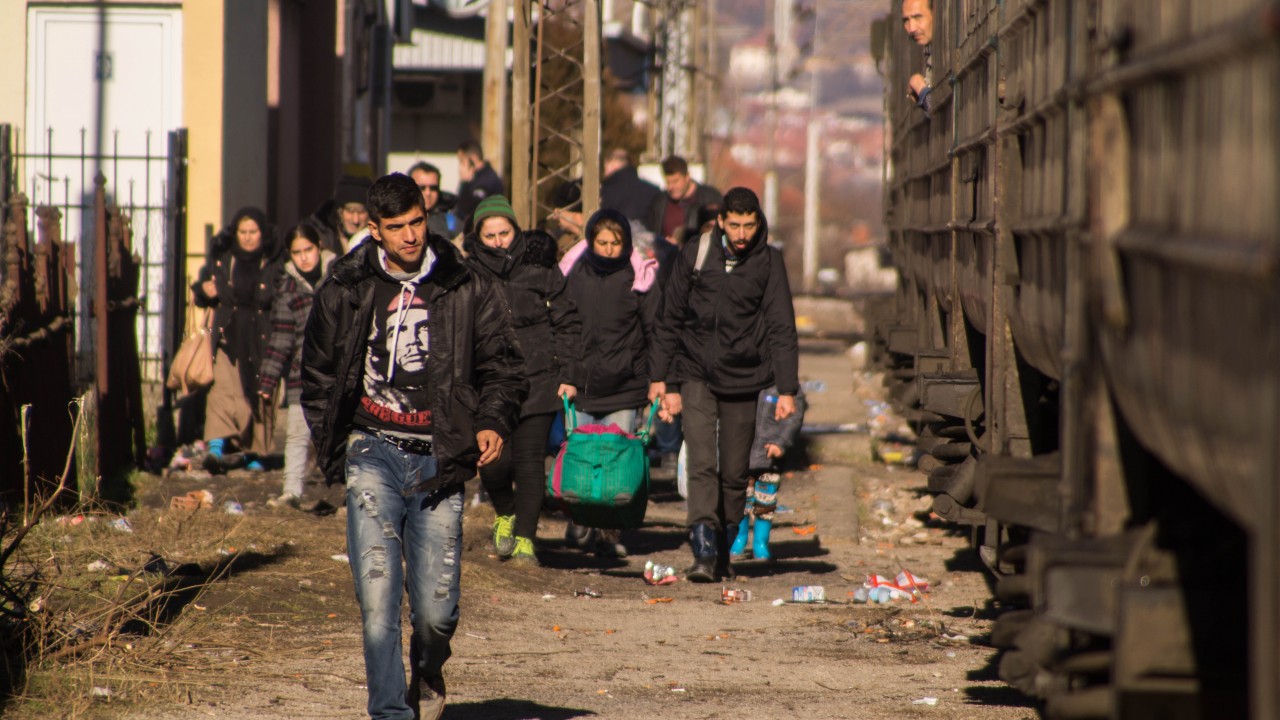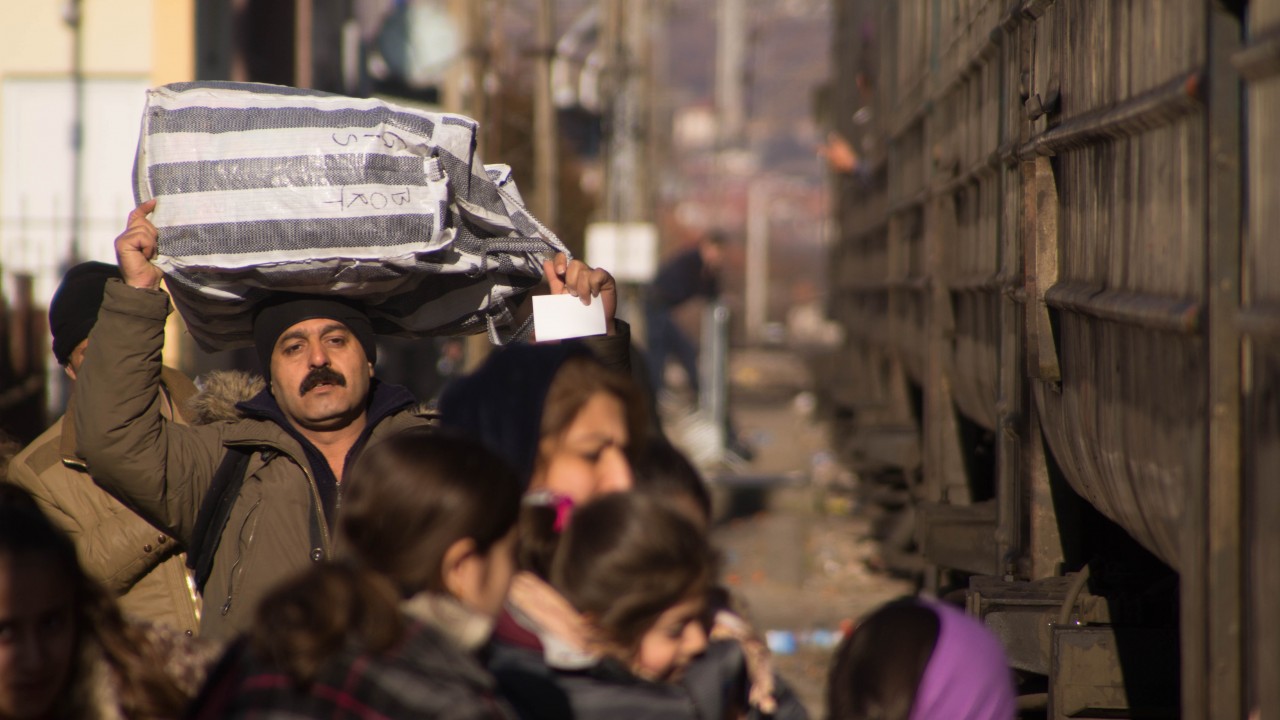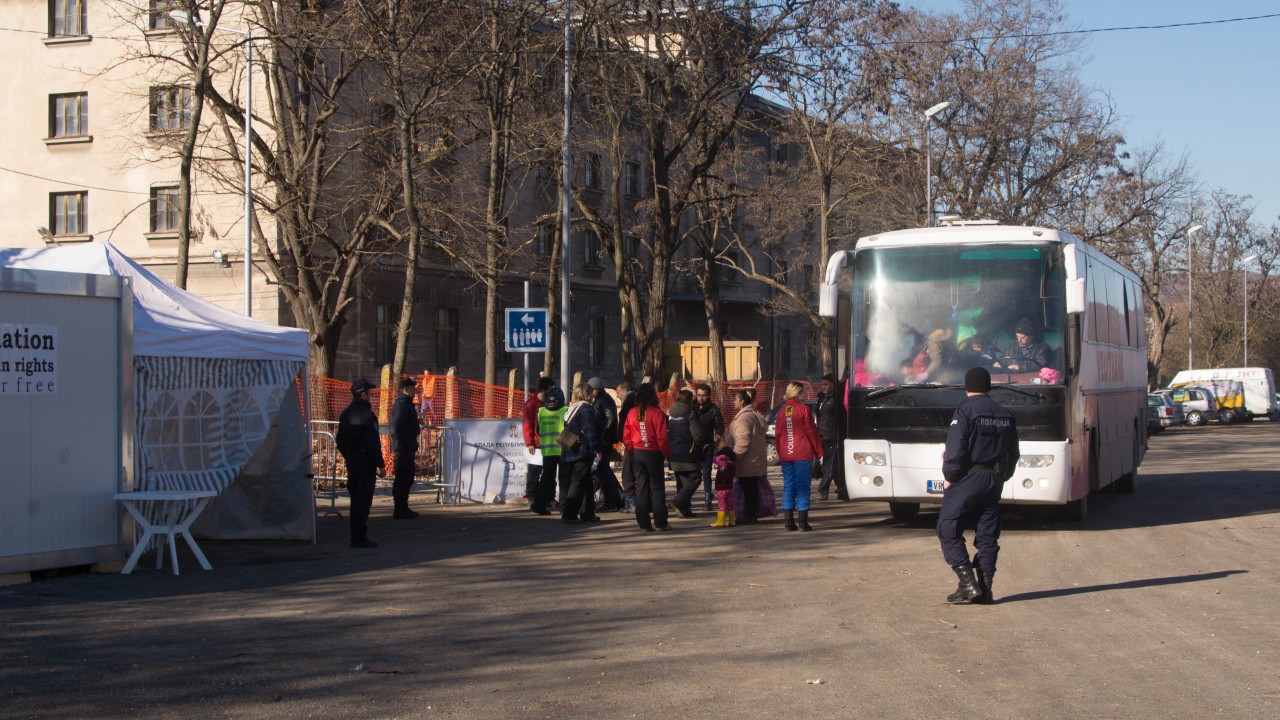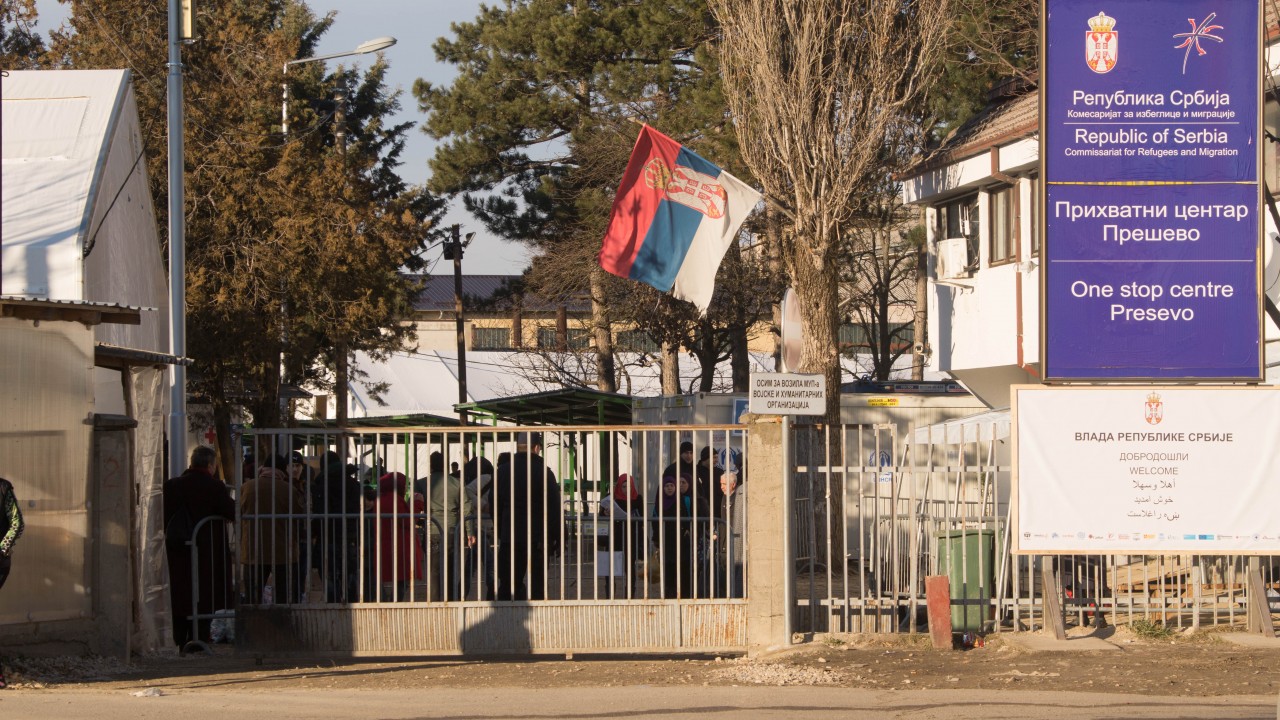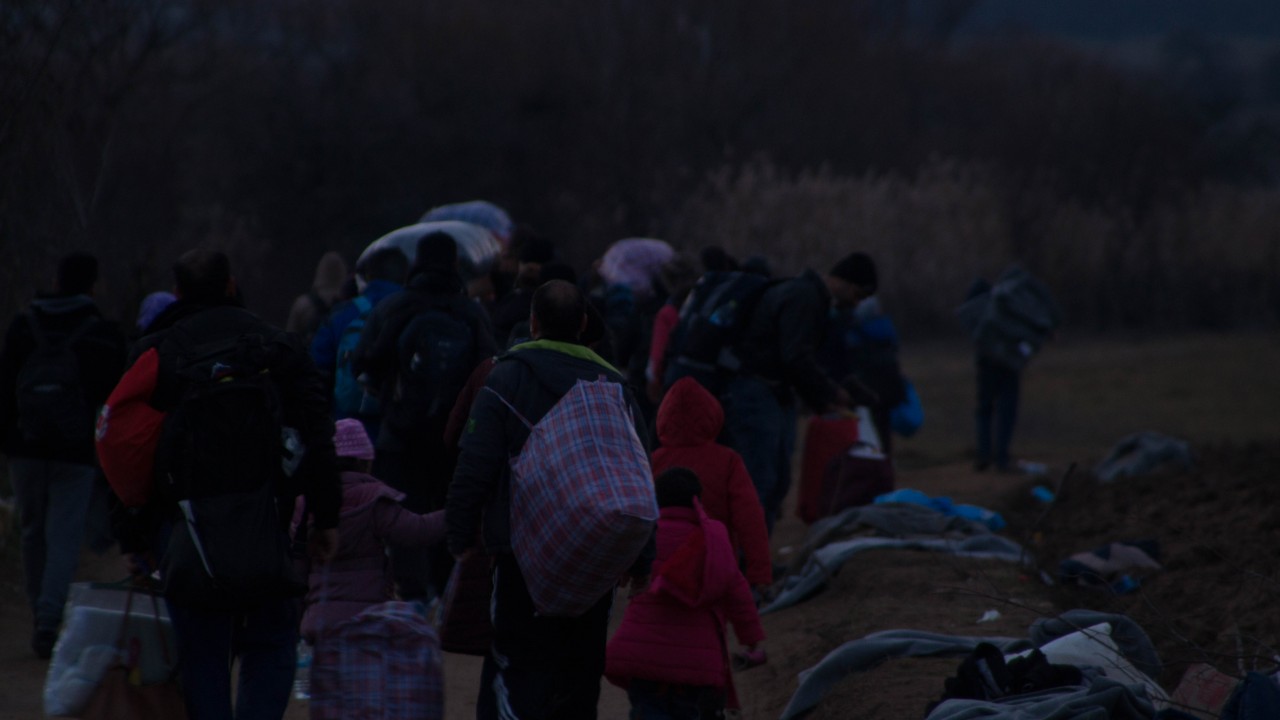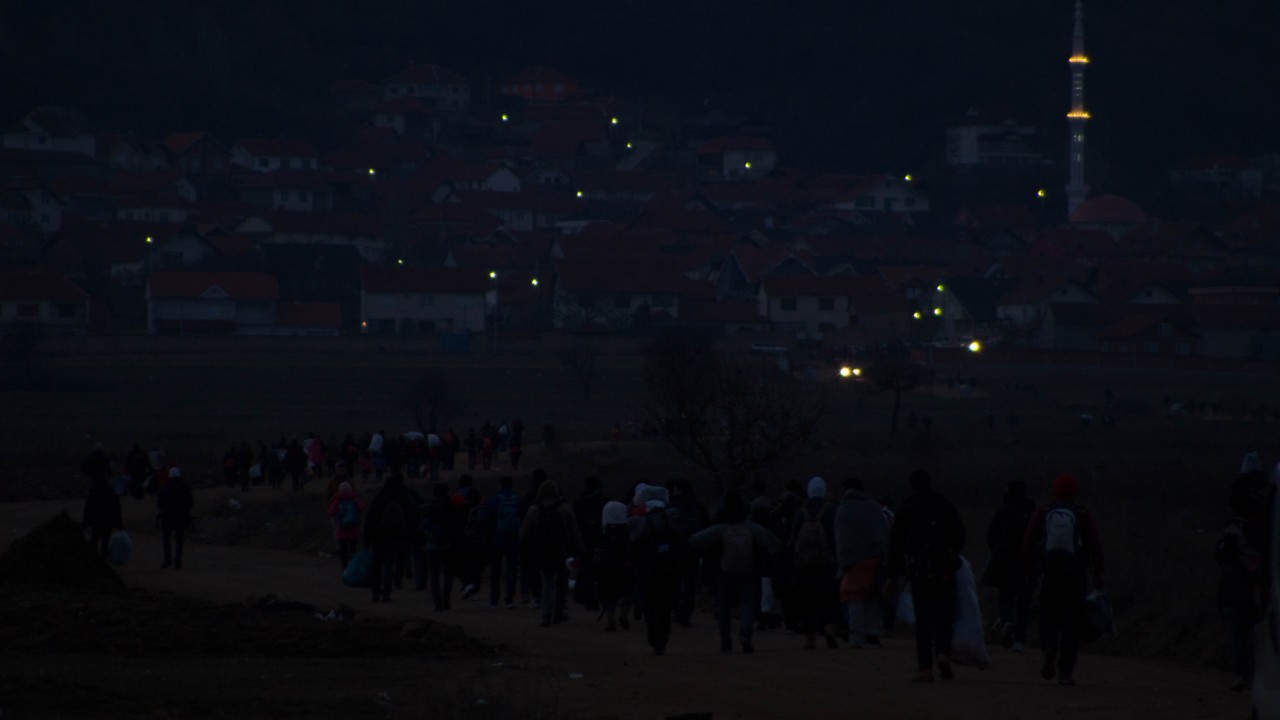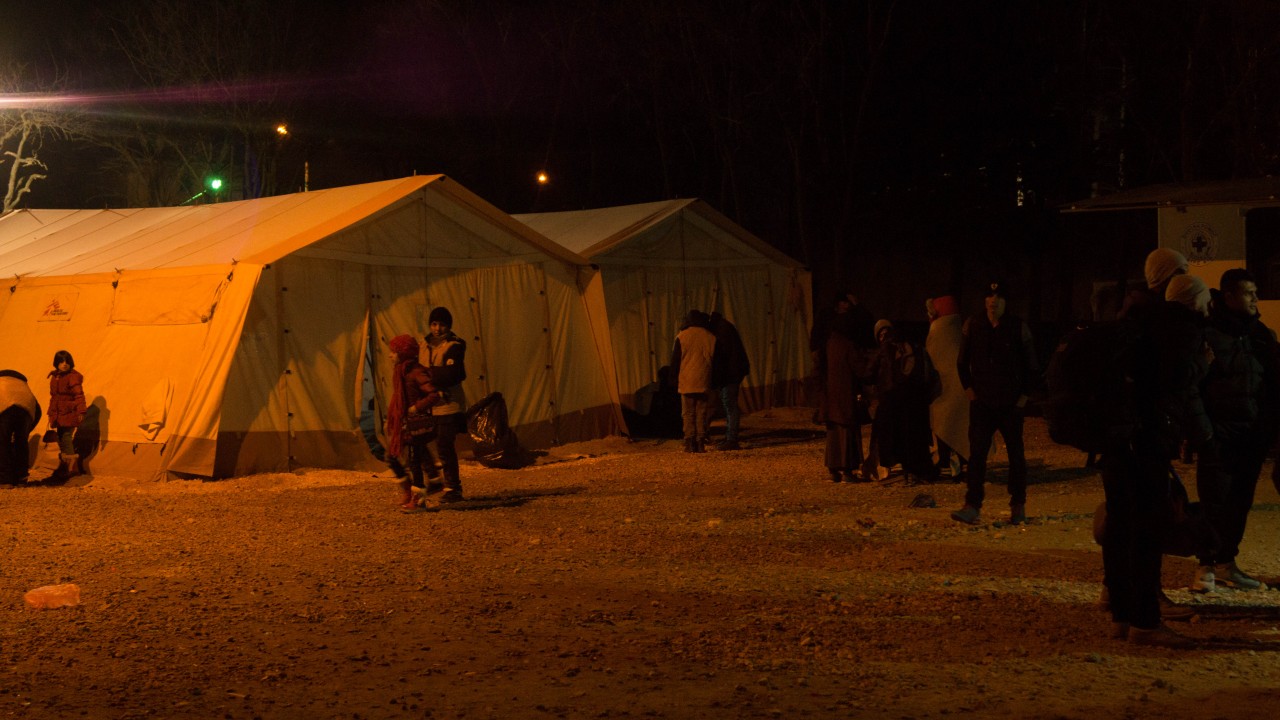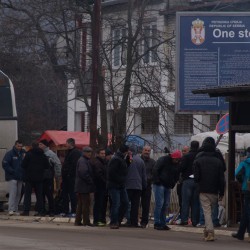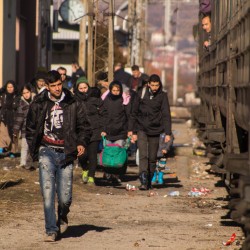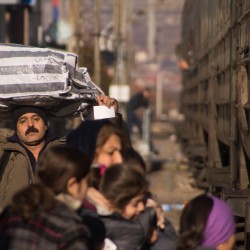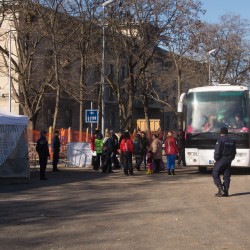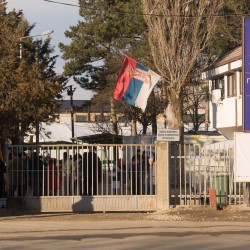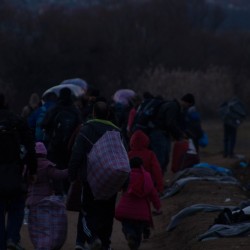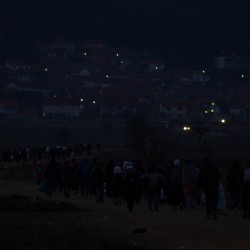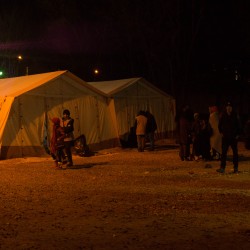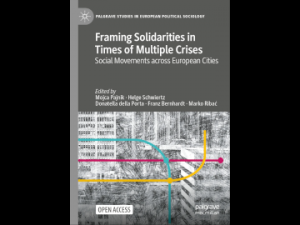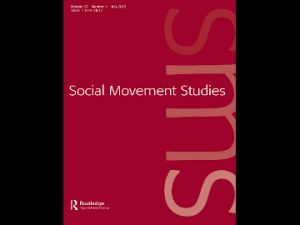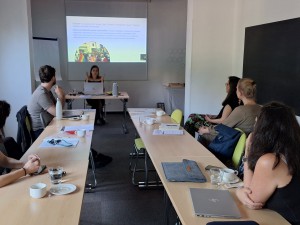Field Report on Refugees Situation in Preševo (Serbia)
21. 1. 2016 | Human Rights and Minorities
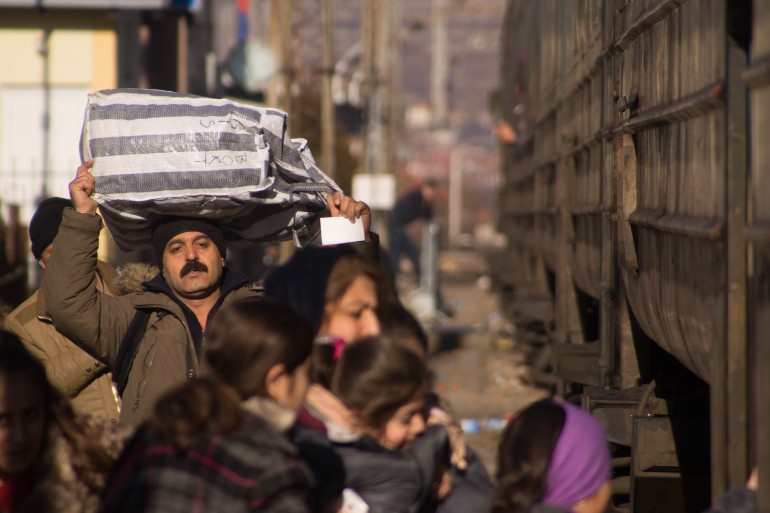
General Situation:
The registration center in Presevo is at the border between Macedonia and Serbia. Refugees travel from the Greek border to the Serbian border by train, arriving to Tabanovce. From Tabanovce, they have to walk about 2 kilometers to reach the first Serbian check-point where their documents and their luggage are checked and examined. Then, they have to walk another 2 kilometers to reach Miratovac where they can take a bus to go to the registration center in Presevo, Serbia. There they are registered and can then take a bus, a train or a taxi to go to Sid or Belgrade. If the documents presented to the Serbian police are not valid or if they have lost them, they have to go back to Tabanovce to get new papers.
The general situation in the camp was correct but transportation, information and accommodation have to be improved. Food and clothing distribution was done efficiently by Remar, the Red Cross and various other NGOs. Refugees were free to move inside and outside of the camp to go to the medical center, to the clothes container or to the shops nearby. Number of police officers is reduced to the minimum; mainly they are active when refugees arrive into the camp, for registration, luggage controls and for general security.
Observations:
- Accommodation: The camp was built in order to provide about 3000 places for refugees inside of dormitories and heated tents from UNHCR. Nonetheless, those places are not available as they are kept as an emergency camp in case Croatia would close its border to refugees. It creates a nonsense situation as thousands of beds are available but unused while refugees remain outside in the cold or have to find a place to sleep on mattresses on the ground, inside of the tents where the NGO are normally providing foods and clothes. It would be more efficient to open those dormitories to refugees, especially families while they are waiting their transportation to Sid, instead of letting them outside or in uncomfortable and overcrowded tents. It seems that no authorization was given in that sense.
- Transit: Last week, the registration process (taking fingerprints and issuing an authorization to remain 72 hours on the Serbian territory) was quick as the number of refugees was low due to bad weather conditions between Turkey and Greece. At the beginning of the week, only 1000 refugees per day were registered, while the number went up to around 2500 per day at the end of the week. Once their luggage has been checked by police officers, refugees could receive food and clothes, and register before departing to Sid. Refugees remain less than a day (generally few hours) in this camp.
- Transportation from Miratovac to Presevo: Free buses are available for refugees from Miratovac to Presevo. However, taxi drivers are waiting 300 meters before the buses and are charging 15€ to drive them to Presevo. They are often lying to the refugees, telling them that there are no buses available and that they would have to walk to Presevo. Police is aware of the situation but is not doing anything to change it. Some NGO members were threatened because they were informing refugees that they should not take taxis as buses were available for free, and because they were driving disabled persons from the check-point to Miratovac.
- Transportation from Presevo to Sid: To go to Sid, at the border with Croatia, refugees can opt for buses, trains or taxis. Bus ticket costs 35€ per person, taxi costs 50€ per person and train ticket costs 15€ per adult, 7,5€ for children between 7 and 12, and free for children under 7. Normally, there are 2 trains per day from Presevo to Sid, one at 10am and one at 5pm. In reality, they are often cancelled without special explanation or information. When there is a train, refugees are punctual but departure is often delayed for many hours. As refugees rushed to arrive on time, they often forget to take water and food for the journey. They are then waiting inside the train for hours and don’t dare to go out of the train to get water and food as they do not know when the train will depart. There are no NGOs at the train station to provide information to the refugees, leaving them in a state of expectation. They also buy food, water or other products in the shops nearby as they do not know that the NGO CARE would provide them with food and water before the train leaves. Moreover, the train tickets can only be bought at a desk inside the camp but it is often closed. For those reasons, we can say that refugees are “pushed” to use buses and taxis which are more expensive than trains. Buses leave regularly, night and day, when they are full. Taxi drivers are waiting at the exit of the camp and try to convince refugees to drive with them to Croatia. To convince them, they sometimes tell them that buses are going to Belgrade and not directly to Sid, or that they would have to wait hours inside of the buses before crossing, which is not true. In previous months, there were cases of refugees being told that they arrived to the border with Croatia but they were, in fact, dropped off by taxi drivers in the middle of nowhere and abandoned without any information. However, it seems that the situation is improving thanks to a deeper control of the licenses and a reduction of the illegal taxis taking advantage of the lack of information of the refugees.
- Medical Assistance: Medical assistance is provided 24/7 inside of the camp. Outside of the camp, MSF offers a medical assistance from noon till 10pm every day. Problems occurred for refugees sleeping in the tents of NGOs outside of the camp. On Monday 11th January at 4 am a 2 years old boy died due to a heart problem. It seems that no medical assistance was available at that moment. Other refugees, not from Syria, Iraq and Afghanistan, who could not register, are denied access to the camp and do not have access to medical assistance outside of the MSF schedule (from noon till 10 pm).
- Cards: Families with babies, young children and old persons receive in Presevo a card with 5000 dinars (about 42€). They can use it to buy transportation tickets or other products. Other refugees can receive the same card 20 hour after arriving in the camp, if they declare that they do not have money with them.
- Lack of translators: Arabic and Farsi translators are needed in Presevo, most of all outside of the camp to help with refugees from other countries than Syria, Iraq and Afghanistan.
- Sanitation: Toilets, showers, water valves and sinks are installed in the camp of Presevo. No major problems were noticed, except that the sewers often get clogged.
- WIFI: Camp and train station are equipped with free WIFI networks.
- Cross-border communication: Communication between NGOs in Macedonia and Serbia is well established with What’s App groups. They can easily be informed on the problems occurring, on arrivals, departures and number of refugees.
Volunteers:
Last week, the number of volunteers was sufficient in Presevo as the number of refugees was low. In general, there is no special need for volunteers as there are enough volunteers from local NGOs. However, if you want to volunteer there, it is better to contact one NGO before arriving in Presevo. NGOs working in Presevo are: Remar, MSF, MercyCorps, Border Free, Serbian Red Cross, CARE, Adra. Accommodation is often provided for volunteers.
In contrary, volunteers are urgently needed in:
Belgrade at Miksaliste Center, close to the bus station:
Contact person: Tajana Zadravec: 0038161 6673931
You can register on the Facebook group to see what are the needs:
https://www.facebook.com/groups/1846043605622166/1869771743249352/?notif_t=group_activity
No accommodation is provided for volunteers, but hostels in the center of the city are cheap.
Sid and Adasevci, at the accommodation center at the border between Serbia and Croatia:
Contact person: Petra Quirke: petra.quirke@gmail.com
Send an e-mail to inform about your arrival.
Accommodation for volunteers is available in the center.

